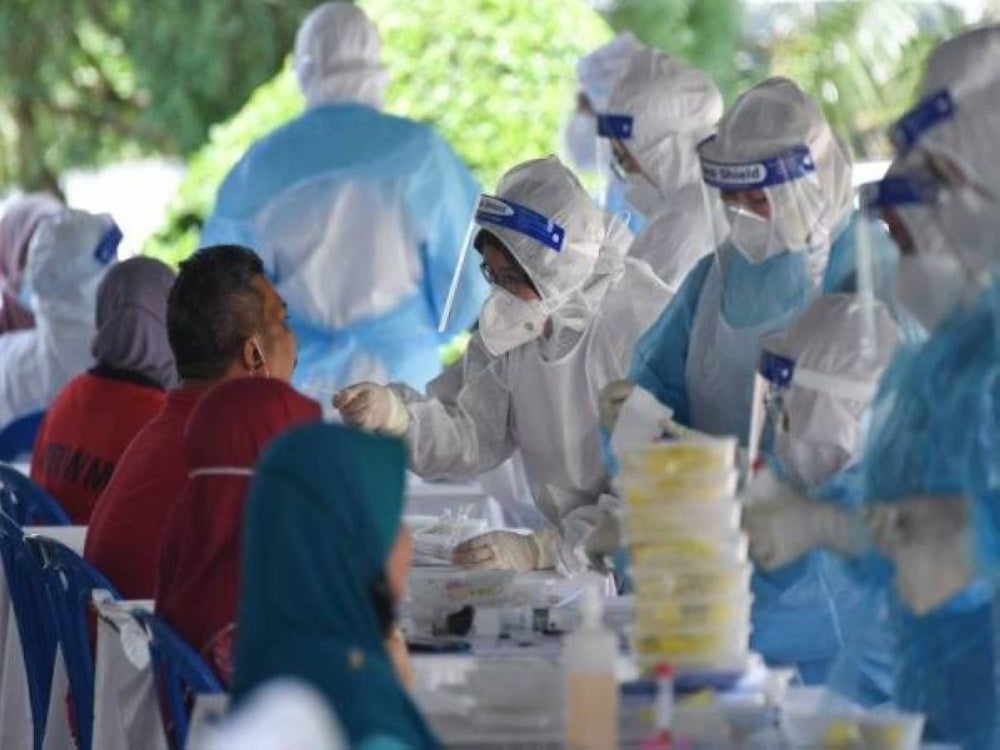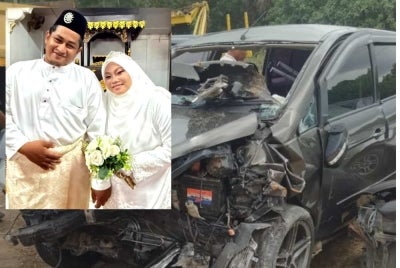Covid-19: Reinfection can have psychological effects on patients

KUALA LUMPUR - Sales executive Muhamaad Faizal Awang Kechil's voice cracks with emotion as he shares his experience after being diagnosed with Covid-19 for the second time. Rather, his second bout - three days after receiving his booster shot - is more serious than his first.
"After being reinfected for the second time early this year, I was seriously devastated, depressed and stressed out and was also afraid at the thought of having to go through the same ordeal when I was first infected with the (SARS-CoV-2) virus in March 2020.
"In my first case, I had to be admitted to Hospital Sungai Buloh for 14 days and was fully dependent on oxygen support. For the second infection, I was warded at the same hospital for 11 days but was only on oxygen support for three days," Muhamaad Faisal, 26, told Bernama recently.
"I'm not sure how I picked up the virus, but after the booster shot, I was having symptoms like coughing, fever and severe breathing difficulties. I went to the clinic, did swab test and was tested negative. Maybe I was seated with people who were Covid-19 positive while waiting at the clinic.
"The side effects that I developed after the second infection was the worst as until today I am still experiencing shortness of breath, fatigue, chest pain and in fact I have still not recovered from lingering coughs," said Muhamaad Faizal, who resides in Damansara.
TRAUMATIC EXPERIENCE
Muhamaad Faizal who has a history of asthma, said before his second Covid-19 episode, he did not have any asthmatic attacks as he had been exercising caution in his food intake and taking care of his health.
He said the side effects from the Covid-19 reinfection had somewhat affected his daily routine, especially at work.
"With the improving situation (decline in Covid-19 cases) and the lifting of the Movement Control Order (MCO), I was all geared up to return to work, but didn't expect to be reinfected, which triggered worse side effects.
"I was traumatised at the thought of having been reinfected with Covid-19. I became more vigilant by trying to avoid crowds, cutting down on shopping mall visits and observing standard operating procedures (SOP) like wearing face masks on most occasions and using the hand sanitiser," he said.
Sharing her thoughts on Muhamaad Faizal's experience, a psychologist and senior lecturer at the Department of Educational Psychology & Counselling Faculty of Education, Universiti Malaya (UM) Dr Noor Aishah Rosli said what he is going through is a common phenomenon faced by most former COVID-19 patients.
In fact, she said, the psychological impact from the cognitive emotional and human behaviour aspects, can also influence as well as affect their families and close friends.
"For those who have been reinfected for the second time, it would be a double whammy for them as the dark episode such as stress, depression and fear as well other side effects that have disrupted their daily routine, would be worse off this time around.
"As an example, my patient is also prone to trauma and panic attacks whenever he is in small and cramped space. This is because of the dark episode that he experienced as a reinfected Covid-19 patient and was admitted to the Intensive Care Unit (ICU) following his deteriorating condition.
"Until now, he still has anxiety disorder symptoms, especially when he takes the stairs or if he is in a narrow and dark place. His problem is not related to Covid-19 infection concerns, but is driven by his fear of falling sick. From a healthy individual, he now suffers from panic attacks due to the ordeal that he went through," she said.
VACCINE MINIMISES RISKS
According to Dr Noor Aishah, the misconception that vaccine and booster shots can guarantee Covid-19 immunity, also contributed to psychological effects and panic attacks faced by those reinfected by the virus.
Some Covid-19 patients experienced depression and were mortified after being diagnosed with the virus amid vaccine hesitancy and anti-vaccine rhetoric over the need for vaccination. (anti-vaccine).
On the surge in new Covid-19 cases in the country which have surpassed 10,000, she said the latest figures definitely raised concern and anxiety among the people.
The number of new Covid-19 cases on Feb 6 exceeded the 10,000 mark with 10,089 cases, bringing the cumulative figure to 2,914,220, according to Health director-general Tan Sri Dr Noor Hisham Abdullah.
The last time Malaysia recorded new Covid-19 cases of above 10,000 was on Oct 2 last year, with 10,915 cases.
In a tweet on Feb 6, Health Minister Khairy Jamaluddin said Malaysia is fully hit by the Covid-19 Omicron variant wave now, adding that the number of daily Covid-19 cases is expected to hit 15,000 a day soon.
Describing the surge in Covid-19 cases as a global phenomenon, Dr Noor Aishah said it is important for the people to remain cautious and take precaution against the spread of the virus.
"With many celebrations, events and large gatherings taking place...don't let your guard down, just comply with SOP for self-protection to prevent Covid-19 infections.
"For those who are sick, infected by Covid-19 or are close contacts, please be responsible and do not be self-centred by socialising as in normal days to prevent from infecting others," she said.
Meanwhile, Occupational Health Doctor, who is also President of the Malaysian Society for Occupational Safety and Health (MSOSH) Dr Shawaludin Husin said mental preparedness in facing the risks of Covid-19 infection varies for every individual.
It covers background (such as age, chronic disease), experience (previously infected), demographic factor related to population density, facilities available at a certain area (town or village) and also the community's readiness to accept the fact that they have to live with Covid-19.
"For those who regard vaccine as a prevention against Covid-19 infection, such perception must be corrected. If you do become infected, it minimises the effects of the virus from becoming seriously ill. "For those who questioned why they are still infected despite being fully vaccinated, the fact remains we have to live with the virus," he said.
On those who doubted the effectiveness of the vaccine, he said Covid-19 vaccine benefits outweigh its known adverse reactions and that vaccination is the safest way to prevent severe Covid-19 infection.
He said every individual should go through life as normal in the new normal in addition to conducting self risk assessment, such as complying with SOP and conducting a Covid-19 self test whenever one plans to travel for self-preparation and in public interest.
Both employers and their staff should work hand in glove in the fight against the pandemic which has not shown signs of abating, and learn to be tolerant and to live in harmony with one another in order to protect lives and livelihoods.
"We should have learned lessons from the Covid-19 pandemic and be more ready from all aspects to minimise the psychological effects such as stress and depression, that are likely to emerge in the next wave, if it does happen. So, we should hope for the best and prepare for the worst," he added. - BERNAMA
Download Sinar Daily application.Click Here!














